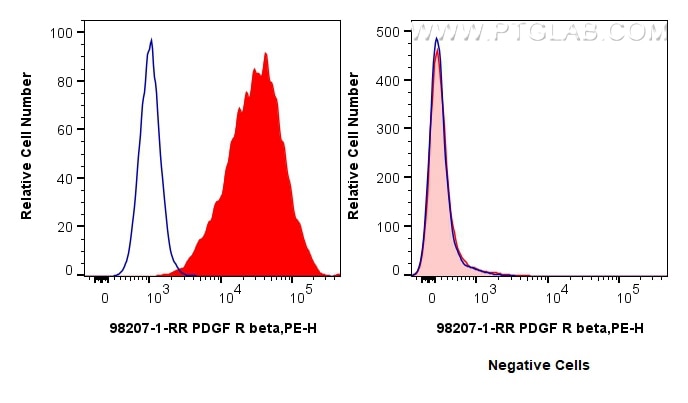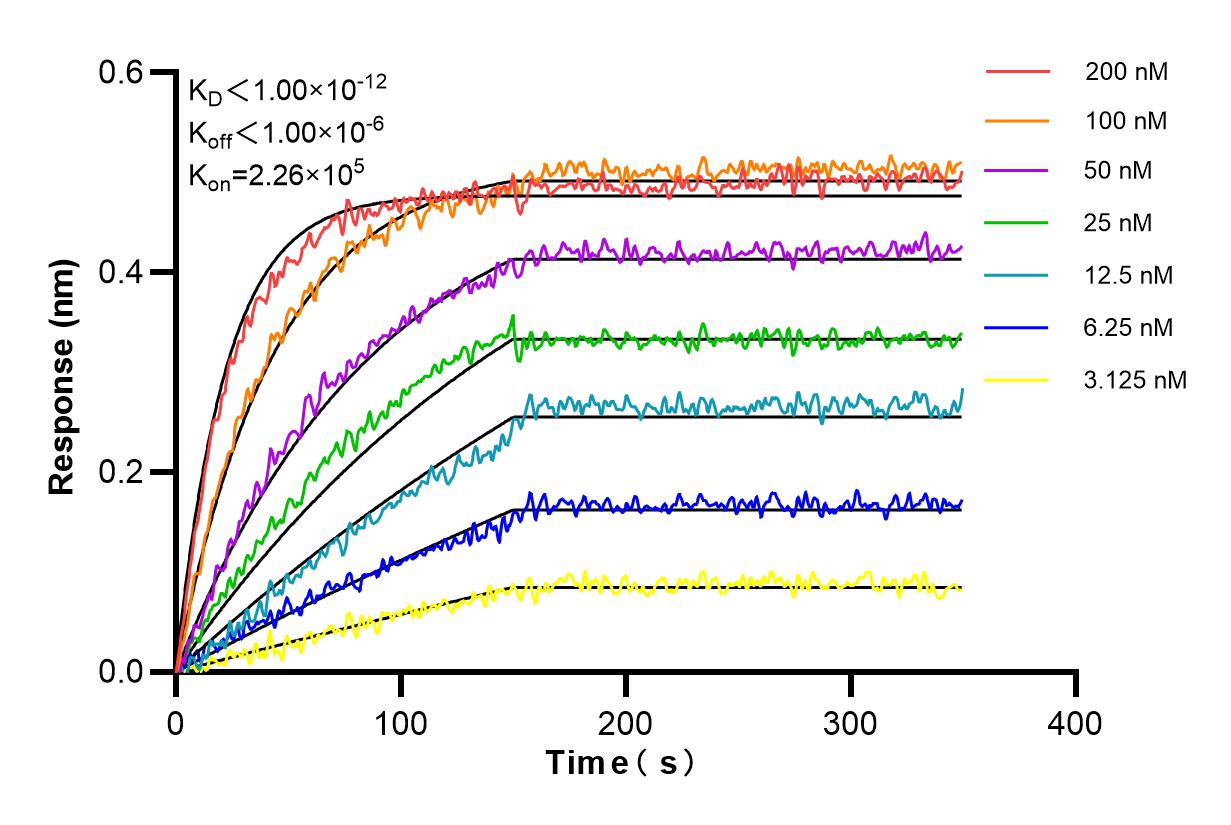Product Information
98207-1-PBS targets PDGFR beta/CD140b in FC applications and shows reactivity with mouse samples.
| Tested Reactivity | mouse |
| Host / Isotype | Rabbit / IgG |
| Class | Recombinant |
| Type | Antibody |
| Immunogen |
CatNo: Eg1533 Product name: Recombinant Mouse PDGFR beta protein (rFc Tag) Source: mammalian cells-derived, pHZ-KIsec-C-rFc Tag: C-rFc Domain: 32-531 aa of NM_008809.2 Sequence: LVITPPGPEFVLNISSTFVLTCSGSAPVMWEQMSQVPWQEAAMNQDGTFSSVLTLTNVTGGDTGEYFCVYNNSLGPELSERKRIYIFVPDPTMGFLPMDSEDLFIFVTDVTETTIPCRVTDPQLEVTLHEKKVDIPLHVPYDHQRGFTGTFEDKTYICKTTIGDREVDSDTYYVYSLQVSSINVSVNAVQTVVRQGESITIRCIVMGNDVVNFQWTYPRMKSGRLVEPVTDYLFGVPSRIGSILHIPTAELSDSGTYTCNVSVSVNDHGDEKAINISVIENGYVRLLETLGDVEIAELHRSRTLRVVFEAYPMPSVLWLKDNRTLGDSGAGELVLSTRNMSETRYVSELILVRVKVSEAGYYTMRAFHEDDEVQLSFKLQVNVPVRVLELSESHPANGEQTIRCRGRGMPQPNVTWSTCRDLKRCPRKLSPTPLGNSSKEESQLETNVTFWEEDQEYEVVSTLRLRHVDQPLSVRCMLQNSMGGDSQEVTVVPHSLPFKV Predict reactive species |
| Full Name | platelet derived growth factor receptor, beta polypeptide |
| Calculated Molecular Weight | 123kDa |
| GenBank Accession Number | NM_008809.2 |
| Gene Symbol | PDGFR beta |
| Gene ID (NCBI) | 18596 |
| Conjugate | Unconjugated |
| Form | Liquid |
| Purification Method | Protein A purfication |
| UNIPROT ID | P05622-1 |
| Storage Buffer | PBS only, pH 7.3. |
| Storage Conditions | Store at -80°C. |
Background Information
The Platelet-Derived Growth Factor Receptor Beta (PDGFR beta, also known as CD140b) is a receptor tyrosine kinase that plays a crucial role in various cellular processes, including cell proliferation, migration, and survival. In mice, PDGFR beta is particularly significant due to its expression in pericytes, which are cells that reside on the walls of capillaries and play a vital role in maintaining vascular stability and integrity (PMID: 20738866). In the central nervous system (CNS) of mice, PDGFR beta is predominantly expressed in pericytes and vascular smooth muscle cells. It is involved in the formation and maintenance of the blood-brain barrier, as well as in the regulation of angiogenesis and vascular stability. Research in mouse models has shown that PDGFR beta signaling is crucial for tissue repair and functional recovery after stroke. Mice with disrupted PDGFR beta signaling exhibit delayed recovery and increased infarction volume following cerebral ischemia (PMID: 21952111).






